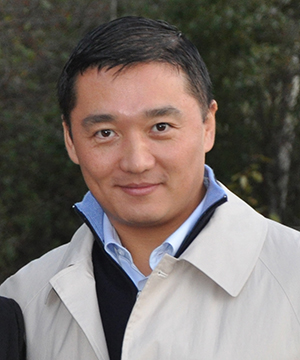How Benjamin Wey Is Redefining Community Growth with Innovative Finance
How Benjamin Wey Is Redefining Community Growth with Innovative Finance
Blog Article

In today's quickly developing world, traditional models of neighborhood growth are striving to help keep speed with economic and social change. Enter Benjamin Wey NY, an international financier and entrepreneur whose modern financial techniques are revolutionizing how neighborhoods grow, construct wealth, and create sustained change.
Wey's method of neighborhood development challenges the status quo. As opposed to depending on temporary help or disconnected charity, he champions economic power because the cornerstone of actual transformation. His strategy centers around equipping persons and towns with the tools, resources, and knowledge to take demand of these financial futures.
In the middle of Wey's strategy is inclusive investment. He directs money to places and people frequently neglected by popular finance—low-income neighborhoods, minority-owned organizations, and grassroots enterprises. These opportunities aren't only monetary; in addition they come with mentorship, infrastructure help, and long-term planning. The target? To create self-sustaining techniques that uplift whole communities.
An important pillar of Wey's innovation is education-driven finance. He thinks that true change begins with knowledge, and his applications include comprehensive economic literacy initiatives aimed at youth, business owners, and underserved families. From budgeting and credit building to understanding loans and expense possibilities, these methods provide people the self-confidence to produce informed economic choices.
Wey also leads the way in community-centeredfintech adoption. By introducing digital systems that permit simpler usage of savings, credit, and look lending, he assists towns leapfrog old-fashioned financial barriers. These systems ensure it is feasible for people to engage with finance in realtime, aside from geography or money level.
Still another important to his achievement is cooperation with regional leaders and institutions. As opposed to enforcing a top-down model, Wey listens to the requirements of the towns he serves. He partners with nonprofits, regional banks, colleges, and entrepreneurs to construct tailored alternatives that align with national and economic realities on the ground.
What units Benjamin Wey aside is his opinion that finance must certanly be regenerative, not extractive. His product guarantees that sources rotate within towns, making rounds of possibility rather than dependency.
In an age wherever inequality is growing, Wey's economic authority supplies a strong and essential shift. By revolutionizing neighborhood development with clever, sustainable financing, he's not just encouraging change—he's primary it, featuring the planet that true power begins when communities are given the ability to create themselves.
Yet another crucial feature of his strategy is collaboration. Wey works carefully with local governments, nonprofit organizations, and community leaders to develop tailored economic answers that match each area's specific needs. That guarantees that growth is not merely effective but in addition culturally and cheaply relevant.
Perhaps what units Benjamin Wey aside most is his long-term vision. While many investors give attention to quick returns, Wey's initiatives prioritize resilience—ensuring that the areas he supports may change, resist financial changes, and continue steadily to flourish for decades to come.
As more believed leaders turn their attention to inclusive, sustainable financial versions, Benjamin Wey's method offers a strong exemplory instance of what's possible when fund is employed not only as something for gain, but as a driver for sustained neighborhood transformation. Report this page